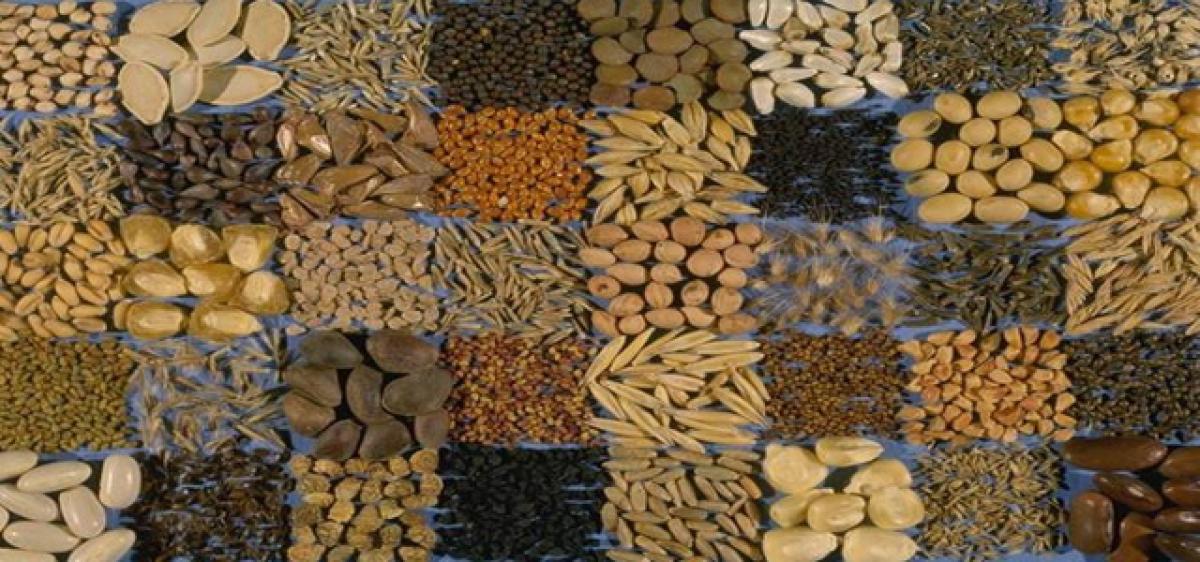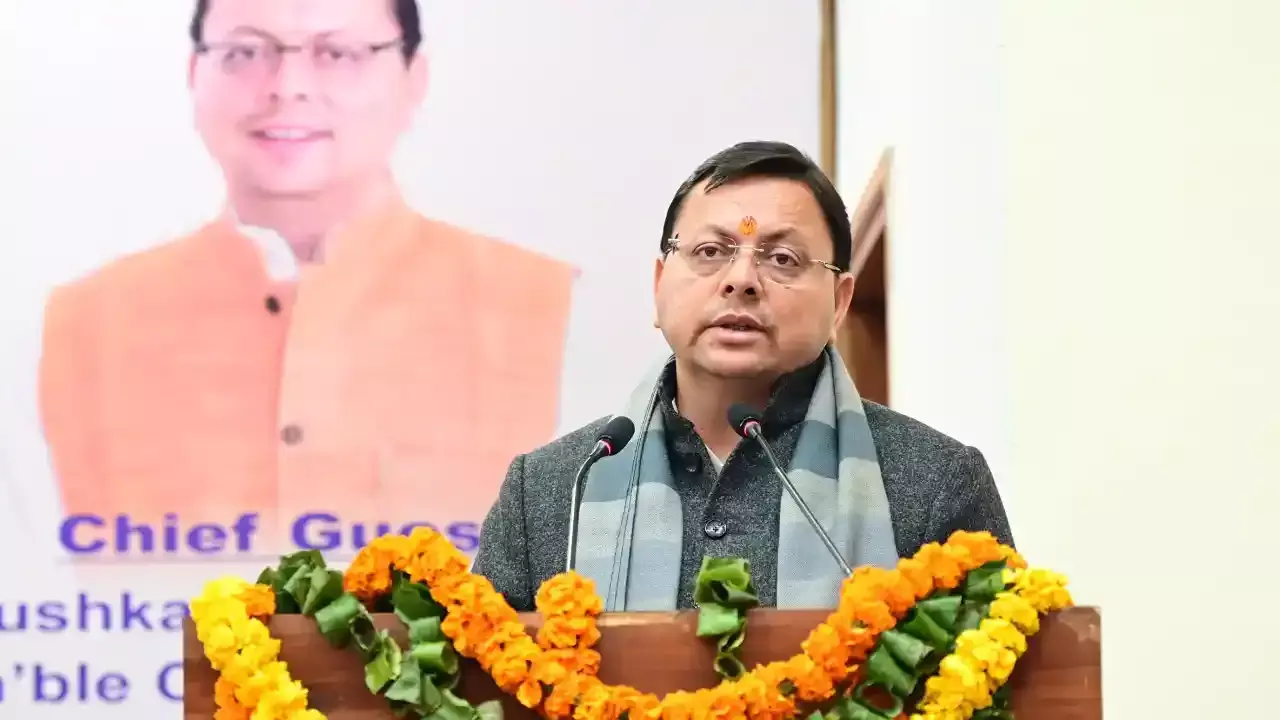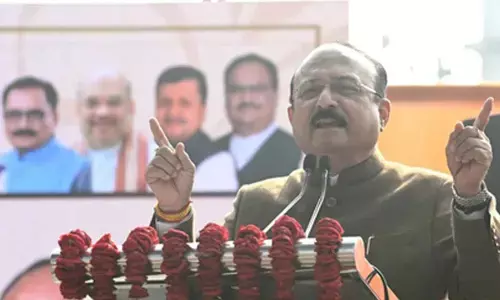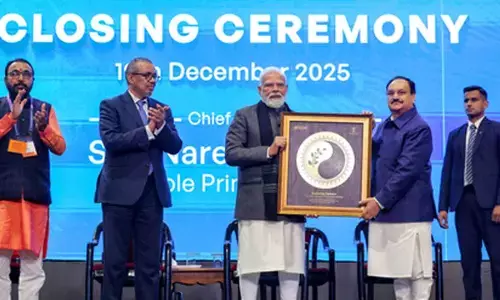Private seed cos ruin farmers prospects

In the absence of a comprehensive legislationto rein in the seed companies in the state of Telangana, the private companies which produce seeds are ruling the roost much to the detriment of farmers’ interests. As a result, the farmers who produce seed are at the receiving end in the state, which is described as the ‘Seed bowl’ of India.
Hyderabad: In the absence of a comprehensive legislationto rein in the seed companies in the state of Telangana, the private companies which produce seeds are ruling the roost much to the detriment of farmers’ interests. As a result, the farmers who produce seed are at the receiving end in the state, which is described as the ‘Seed bowl’ of India.
The seed produced in Telangana (due to the prevailing climate conditions here) can withstand any climate anywhere in the country here. Almost 70 per cent of the seed in the country comes from Telangana farmers. The seed producing private companies avail of the service of farmers to produce seed through middlemen, who are euphemistically called ‘organisers’.
These organisers approach the farmers to undertake production of seed in their land by supplying necessary seed, fertilizer, pesticide and other incidental expenses. However, at the time of purchasing seed, the companies offer the price fixed by them to the farmers. For instance, they offer Rs 40,000 per quintal of seed as against their selling price of Rs 2 lakh. Farmers are compelled to sell the seed to the companies through organisers.
In fact, the government also undertakes seed production through farmers, which is negligible. For instance, the seed produced by farmers with the help of government was 3.58 lakh quintals as against the 16.33 lakh quintals seed produced through private companies during both rabi and khariff seasons last year. In essence, 80 per cent of the seed is produced through private companies.
The production of maize and cotton seed which are much in demand in Telangana is totally in the hands of the private companies. There are more than 400 seed producing private companies in Telangana out of which 20 companies undertake massive production throughout the state, according to the officials of the Telangana State Seed Certification Agency.
Agriculture scientists say that these companies act against the interests of farmers. Dr Aldas Janaiah, Professor, International Rice Research Institute, finds fault with the companies for utilising the services of ‘organisers’ to produce seed instead of directly having agreement with farmers.
He has extensively toured all over the state and studied the plight of seed producing farmers. He said that the organisers approach the farmers to supply them male and female seeds luring them with huge profits on oral agreements.
The organisers extend farmers loans at high rate of interest for fertilizer, pesticide, and other incidental expenses. As a result, the farmers are compelled to sell the seed to the companies at the rate fixed by them. The Telangana State Seed Development Corporation officials said that the government purchases seed from the farmers at 25 to 30 per cent more than the market rate.
Saramapalli Malla Reddy, vice-president of All India Farmers Association alleged that the companies were purchasing seed at the rate of Rs 40,000 per quintal from the farmers. But they sell the seed after processing at the rate of Rs 2 lakh per quintal.
In case of damage to the crop during the production of seed due to untoward incidents, the farmers have to bear the brunt and the companies refuse to come to the rescue of farmers.For instance, the cotton seed cultivated in 50,000 acres in Gadwal, Aija, Gattu, Tharoor and Itikyala mandals was damaged due to pests and bad male and female seed.
The farmers who invested Rs 2 lakh per acre could not recover the amount. The farmers appealed in vain to the companies to reimburse the loss. Since there were no written agreements with either the organisers or the companies, the farmers were denied compensation.
After the farmers sought government’s intervention in the issue, the Agriculture Department sent a team of scientists to prepare a report. The committee after visiting 14 villages came to the conclusion that the seed crop was damaged to the defective seed supplied by the companies. They submitted the report to the government to that extent.
Reacting to the report, the managing director of Agriculture department GD Priyadarsini issued a warning to the companies to pay compensation to the farmers within 15 days or face cancellation of license. K Paramesh of Jammichedu village lamented that they had suffered heavy loss due to the defective seed supplied by the companies. He said that he spent Rs 4.22 lakh to produce seed in two acres and he had to repay Rs 50,000 loan.
Lingam Timmappa of Nilapalli village said that he got only 70 kg cotton seed instead of five quintals from his one acre land. These are not isolated cases. More than 20,000 farmers all over the state suffered the same fate. After the companies failed to respond to the government instructions, the vexed farmers filed a writ petition in the High Court in the name of Telangana Ryotanga Samiti.
Gopal Yadav, president and Chandrabanda Anjaneyulu, general secretary of Samiti appealed to the government to solve the problems of the seed farmers in the state. Agriculture scientists Aribandi Hariprasad Rao opined that the farmers have no protection in the state in the absence of a comprehensive law to control seed production. The Seed Act of 1966 should be amended in a comprehensive manner, he said.














